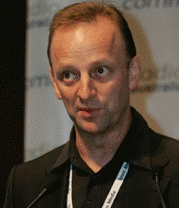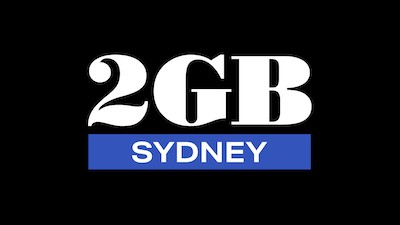A Day in the Life of ABC’s Jeremy Millar

Greg Smith is an inductee into the Australian Radio Hall of Fame, and a Director of Radio Today.
Jeremy Millar has one of the most impressive CV's I’ve seen.
He started in student radio at university in NZ and has worked in a variety of roles that have taken him through to his current role at the ABC today. He has been based in Sydney for the last 18 years (apart from 18 months in Washington DC). Consulting work along the way has seen him work with broadcasters in 19 countries.
He has particular interest in audience research and the application of new technology for broadcasting and content creation/delivery.
Jeremy is the Manager of Metropolitan Local Radio for the ABC.
Greg: When you were offered a job at the ABC did you think twice considering your long career in commercial radio?
 Jeremy: Not for a moment. Like many of my colleagues, I’d found my interest in spoken-word radio was rapidly overtaking my interest in music radio, and the ABC was the place for talk-based services. That’s not to dismiss commercial music radio. Great music radio is vital to the industry and it’s been a really rewarding part of my career. As time went on though, I became a lot more passionate about news and talk-based content – and importantly about the contribution that public broadcasting can make to the communities it serves.
Jeremy: Not for a moment. Like many of my colleagues, I’d found my interest in spoken-word radio was rapidly overtaking my interest in music radio, and the ABC was the place for talk-based services. That’s not to dismiss commercial music radio. Great music radio is vital to the industry and it’s been a really rewarding part of my career. As time went on though, I became a lot more passionate about news and talk-based content – and importantly about the contribution that public broadcasting can make to the communities it serves.
The ABC Chairman Jim Spigelman recently spoke of the distinction between serving consumers and serving citizens. By focusing on the latter, the ABC hosts public debate and the discussion of ideas, which in turn adds value to a democracy. He went on to say that there’s nothing wrong with serving consumers, but that Public service goes well beyond satisfying consumer demand. I think he hit on a key point and something I see in my colleagues here – a genuine desire to engage and serve, and when it all comes together, it’s incredibly rewarding.
Greg: As far as your current role is concerned, was your background in commercial radio a benefit or hindrance?
Jeremy: I haven’t really thought about my time in commercial radio that way, because it hasn’t really been something conscious in my day-to-day work. One observation however is that in commercial radio you are always thinking about the revenue angle, and in public broadcasting you’re acutely aware of the cost angle. Same coin – different sides.
Greg: The bureaucracy at the ABC must frustrate you at times. How do you deal with it? Is it something you work around?
Jeremy: There are a lot of systems and processes – much of it to ensure public money is being spent appropriately, but it’s not that different from working in commercial radio where the business is publicly listed. If the business is reporting to the stock exchange, then there’s a lot of reporting, a lot of forecasting and a lot of checks and balances. I’ve been part of that for years – so stepping into the ABC’s reporting system was pretty straightforward. I think to reflect on the point you raise here, the absence of a monthly revenue goal does slow some decision making down. That can be good and bad. Good because it allows for more thoughtful consideration, it allows for more risk taking, and it allows for independence, but it can be a weakness in terms of being nimble and implementing change.
Greg: With the many challenges ABC Radio faces, what keeps you awake at night?
Jeremy: A third of all Australian Radio listening occurs in the car. We (radio) have enjoyed a near-monopoly on broadcast content forever. But IP audio to the car will see Pandora, Spotify and TuneIn on the dashboard. Although the ABC has been very smart with digital media, we still have plenty of work to do.
Secondly, there’s the never ending challenge to acquire and deliver to new audiences. This comes down to both supporting existing talent and looking out for the next generation. It’s also figuring out how to evolve the overall radio offer given people now use mobile devices so heavily to access news and entertainment that radio once had a near-monopoly on.
Greg: Timing out to news on the ABC is obviously sacrosanct. Occasionally you still hear presenters being cut off in mid-sentence or the news theme being faded up. What instruction is given regarding the delivery of the news?
Jeremy: Yes, the News is sacrosanct; it’s a key attribute in every piece of ABC research, so we don’t ever want to get it wrong. One of the challenges is that we have the most complex transmission network in the southern hemisphere, maybe one of the most complex in the world. There are hundreds of transmitters and repeaters spread over a vast geography spanning multiple time zones. Switching is incredibly complex, plus there is talkback delay and sometimes time-zone buffers. In theory it works well, but this complexity can throw up some quirks – like when a box re-boots by itself and almost like the chaos theory, the impact can appear as if by random down the chain.
Greg: There’s a perception that favoured contributors are given more airtime than others. How do you stop presenters becoming self-indulgent?
Jeremy: I have not had this put to me, but I guess it’s a possible perception. ABC Editorial Policies requires that some contributors are rotated from time to time – for example, we might speak to a banking expert from Westpac for a while, then from Comm Bank. Other times, with say sport, we might not rotate expert contributors for some time as there’s less risk of perceived editorial bias.
 Greg: Are any presenters paid bonuses that are linked to ratings results?
Greg: Are any presenters paid bonuses that are linked to ratings results?
Jeremy: Merit bonuses on the back of an exceptional performance appraisal are possible for any employee, and there are a couple of legacy contracts that include ratings based performance measures, but I’ve gone off these. While the talent is a major factor in the ratings, they are not the sole factor – and they are not in charge of all the levers. They don’t make the decisions on their support team, on promotion, on a host of factors – so it’s not a direct correlation that can be rewarded (and besides, as one former CEO said to me, “We don’t fine presenters when their ratings go down!”)
Greg: Please explain a “day in the life”
Jeremy: I usually arrive at work just after 7am, grab coffee and start processing emails while listening to one of our stations online. I usually have ABC News24 running quietly in-office to see what they’re covering as well.
A typical day consists of a mix of meetings, phone calls, and responding to emails. I attend planning meetings, listen to audio, maybe work on talent development, budget reviews, Sports Rights, online content meetings, research reviews and join a video conference or con-call. I will most likely speak with our Group PD (Michael Mason), the Manager of Regional Local Radio (Tony Rasmussen), my boss (Kate Dundas, Director of Radio), and also with Local Management around the country.
I try to keep some gaps in the day for responding to hot-spots – with a broad talk network we receive a steady stream of correspondence and complaints (after all, there are roughly 60 open mics around the country every breakfast time). Each complaint is processed, and significant issues for metro Local Radio hit my desk for discussion. Some can be complex and require careful analysis – legal checks and the like.
A lot of work in management is rightly people-focused, and I try to process this as soon as I can. I recall the advice of Tom Poleman (President, National Programming Platforms, for Clear Channel Radio) who said that dealing with HR matters is priority number one. It’s good advice, our job is to de-bottleneck, and many times that means actioning or facilitating a staffing matter.
Not just because I’m fascinated by it, I use technology to help manage my day. Obviously Outlook is central to that, but I use automated rules to help manage my in-box. I have a series of RSS feeds that let me process my Internet rounds quickly – I can be across a couple of hundred new posts in just a few minutes several times a day.
I run Tweet-Deck in the background to keep across breaking news, some of our staff posts, and run automated searches on various hashtags (I don’t post much, but I read a lot, I’m intrigued by Twitter’s role in breaking news). I use Google Alerts to provide a clipping service for when our presenters and key personnel are reported in the news, and I get automated alerts for major earthquakes in our regions, breaking stories and the likes. Over the Christmas break I completed Google’s Advanced Searching lessons online, and that has given me some more shortcuts through the day. It sounds like a lot, but it helps me navigate the amount and speed of incoming information.
On my way home I’m listening to one of our shows – either locally on-air or inter-state via our phone app. There are always a few more emails to check early in the evening and then the day’s work is done.
And breathe.


